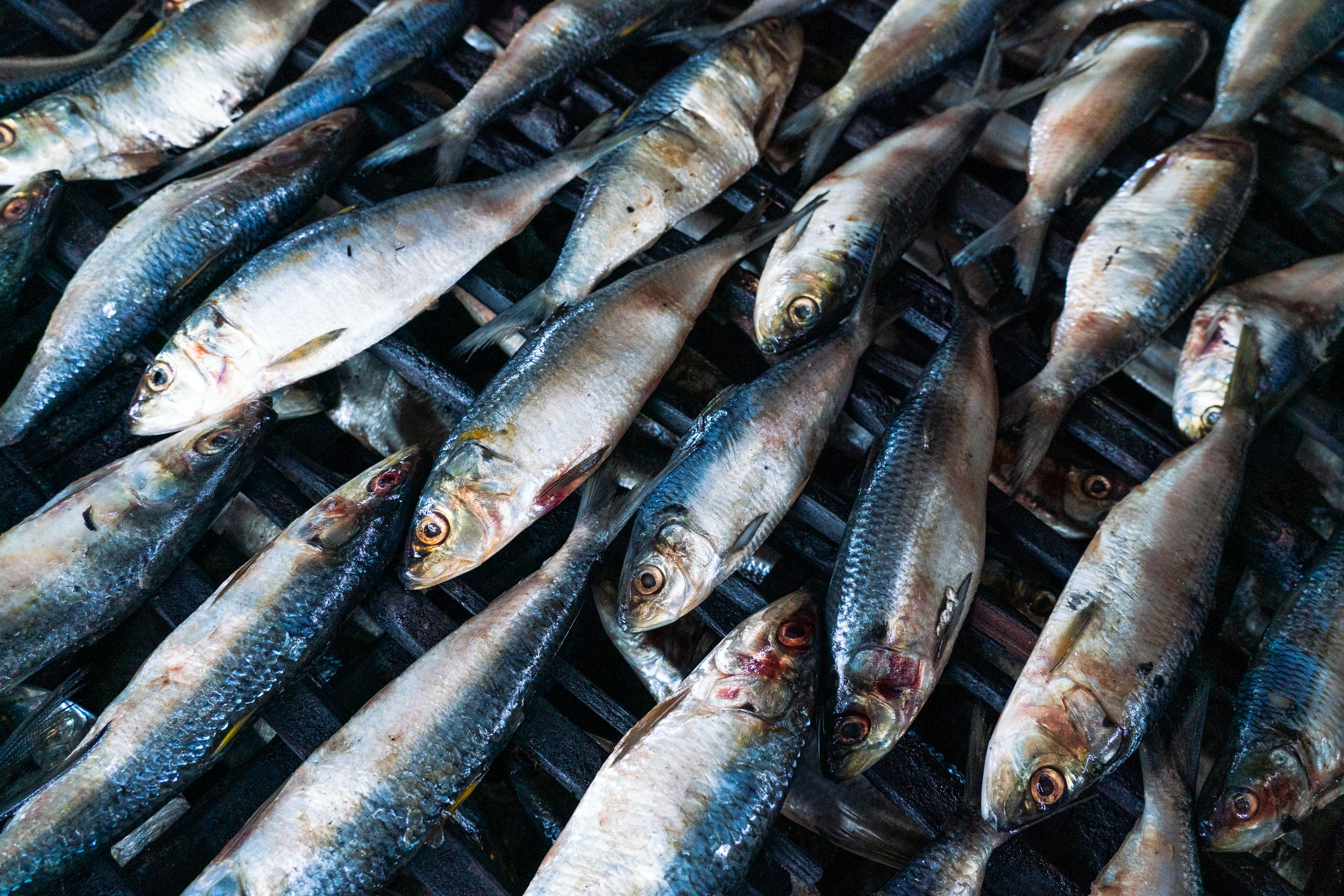Cast your net
A story of survival at sea on the Liberian coast

To the fishing communities living on the coast of Monrovia, Liberia’s capital city, the sea is life. It provides food, transportation, and a way to earn money – money you can use to send children to school, to save, and to build the life you want.
The sea gives the people here a way to live – but it can take life just as easily.
As a fisherman, James knows this all too well. He’s faced death at sea, and lost friends. This is the story of how he weathered the storms, and found his way to a new life.
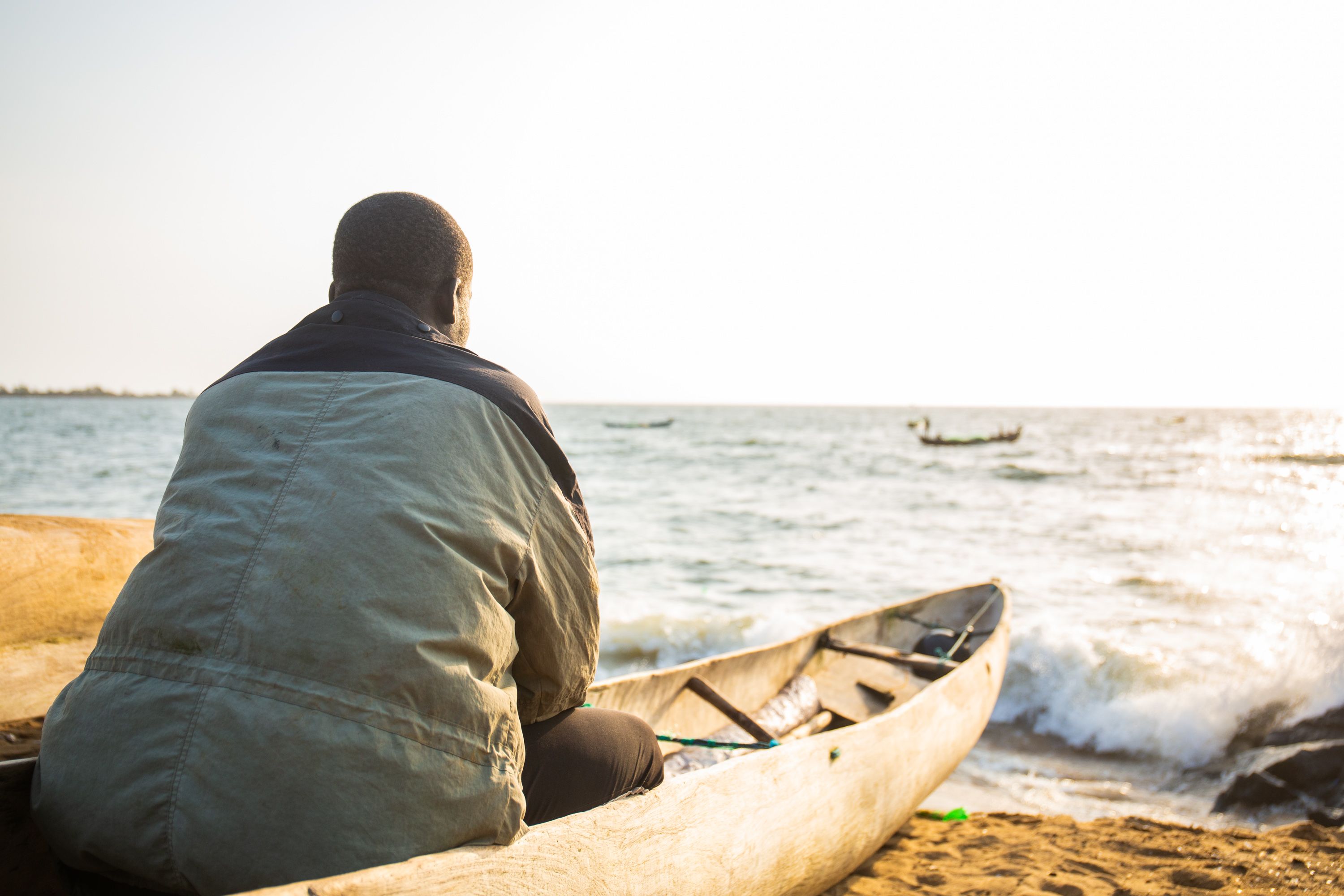

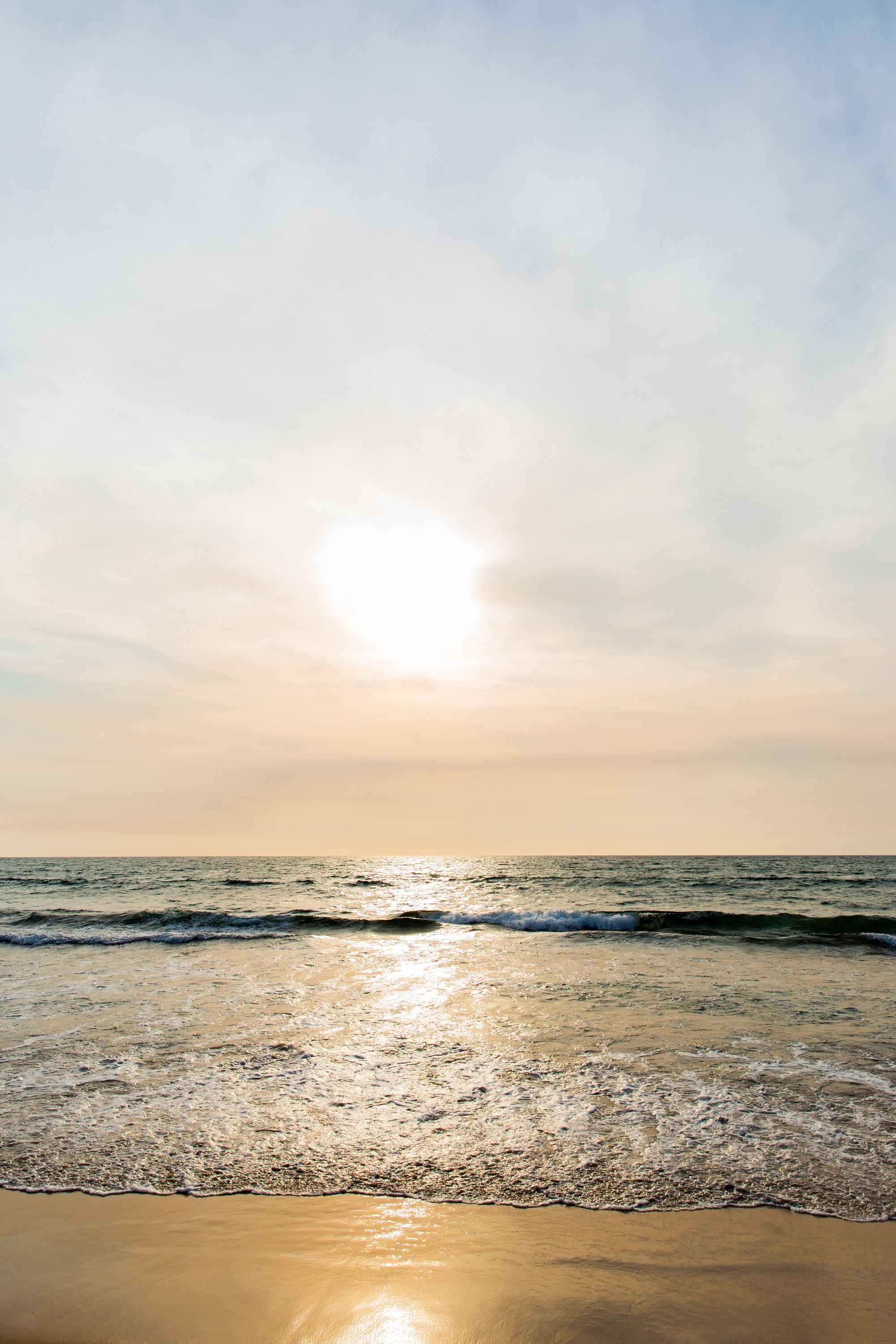
Casting out alone
The place where James was born wasn’t paradise, but it was home. He didn’t have much, but he could just get by through his own energy and hard work.
But then his father died. Then his cousin died. His support network was gone, and he was suffering emotionally. He dreamt of a better life for his young children.
He took the canoe his father had used, that he had made with his own hands. He took his oar, and a rice sack to use as a sail.
And on that morning, he left his home.
“It took four to five days to row in the sea to get here,” he remembers. “I would row and sail from six to six. Twelve hours. It was hard. It’s a long distance to travel by sea. You have to understand the water and know if it is bad or good. "
"I had to make the journey to survive.”
James rowed and sailed over 200km, following the shoreline. Finally, after five punishing days of paddling against the wind and the tide, he made it to Monrovia, the capital city of Liberia.
He’d come here to survive – but for the fishermen in Monrovia, survival meant risking life itself.
Casting out alone
The place where James was born wasn’t paradise, but it was home. He didn’t have much, but he could just get by through his own energy and hard work.
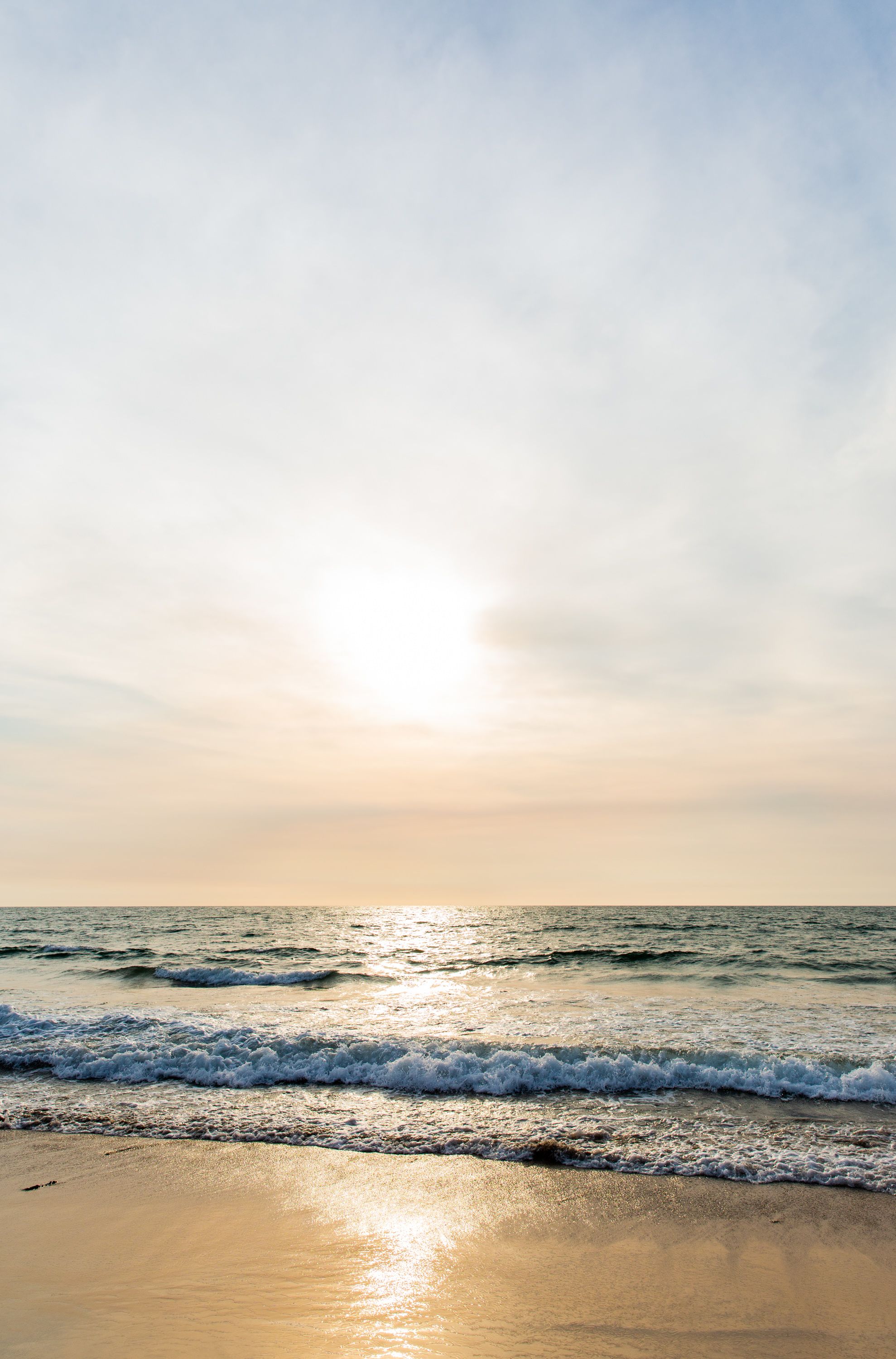
But then his father died. Then his cousin died. His support network was gone, and he was suffering emotionally. He dreamt of a better life for his young children.
He took the canoe his father had used, that he had made with his own hands. He took his oar, and a rice sack to use as a sail.
And on that morning, he left his home.
“It took four to five days to row in the sea to get here,” he remembers. “I would row and sail from six to six. Twelve hours. It was hard. It’s a long distance to travel by sea. You have to understand the water and know if it is bad or good."
"I had to make the journey to survive.”
James rowed and sailed over 200km, following the shoreline. Finally, after five punishing days of paddling against the wind and the tide, he made it to Monrovia, the capital city of Liberia.
He’d come here to survive – but for the fishermen in Monrovia, survival meant risking life itself.
Deadly currents and empty nets
Every fishing family on that busy shoreline had struggled at some point. They knew what it meant to face that terrible choice between staying home, safe but hungry, or facing the storms. Going out to sea meant risking everything in the hope that you’ll bring home a catch.
Five fishermen a month – many James had come to call ‘brothers’ – were dying in storms at sea. They couldn't afford the life jackets, compasses and other equipment needed to stay safe at sea and get a good catch. If James didn’t catch, his family couldn’t eat – sometimes for days at a time.
“When I go out to sea and don’t catch very much, it is very difficult,” says James. “Coming home with nothing you feel bad – you have nothing to feed yourself, you have nothing for your crew, for your family.”
James’ neighbours had helped them through hard times in the past, just as he’d helped them in return - as James says:
“My belief is that if I help you today, you will help me tomorrow. If I don’t show you where I fish today, you won’t show me where you fish tomorrow.”
This was the way of life for the community - you help each other on land and at sea.
But with his neighbours struggling to feed their own families, James knew he had no choice – he had to take his boat out on the water.
He had to risk everything again.
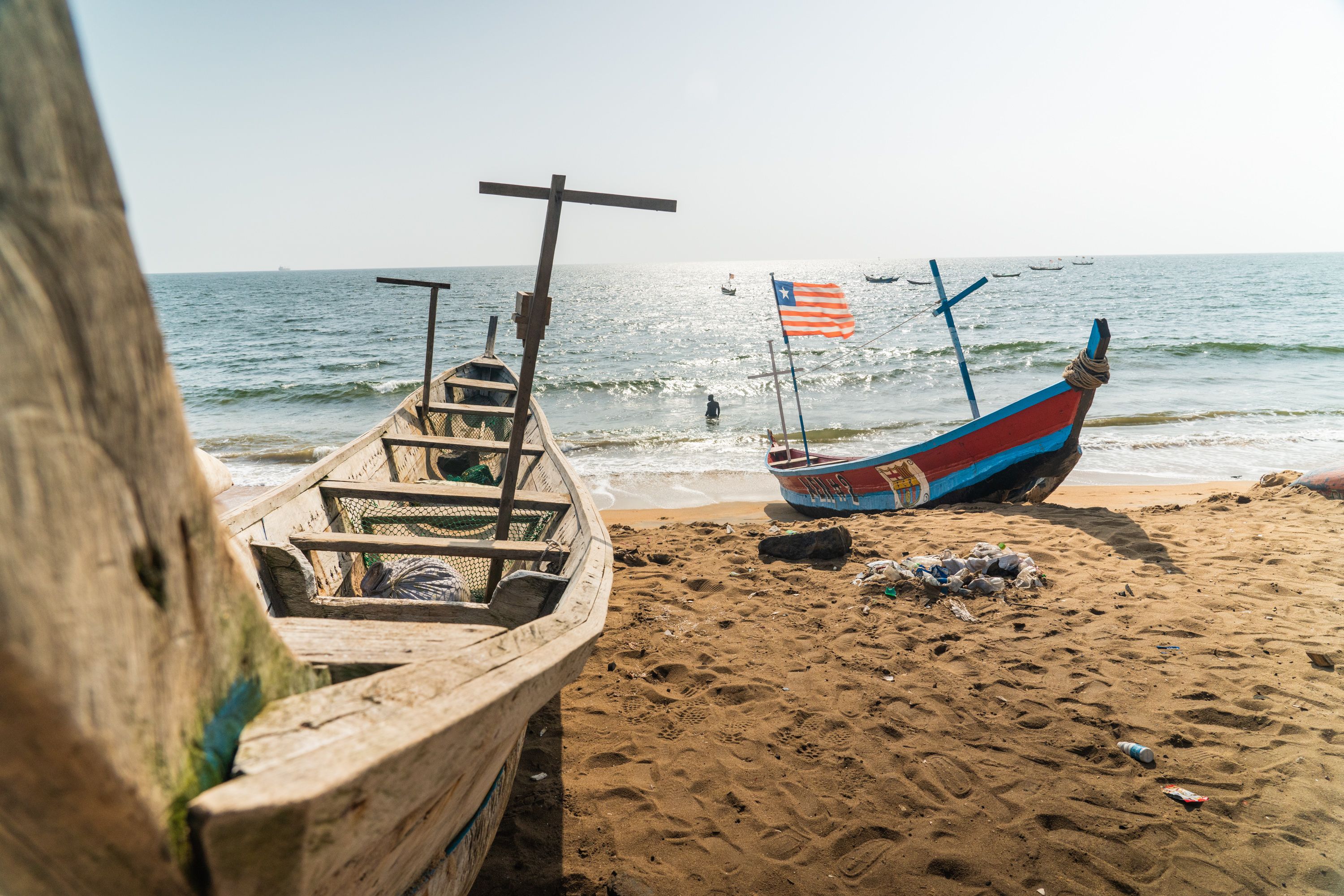
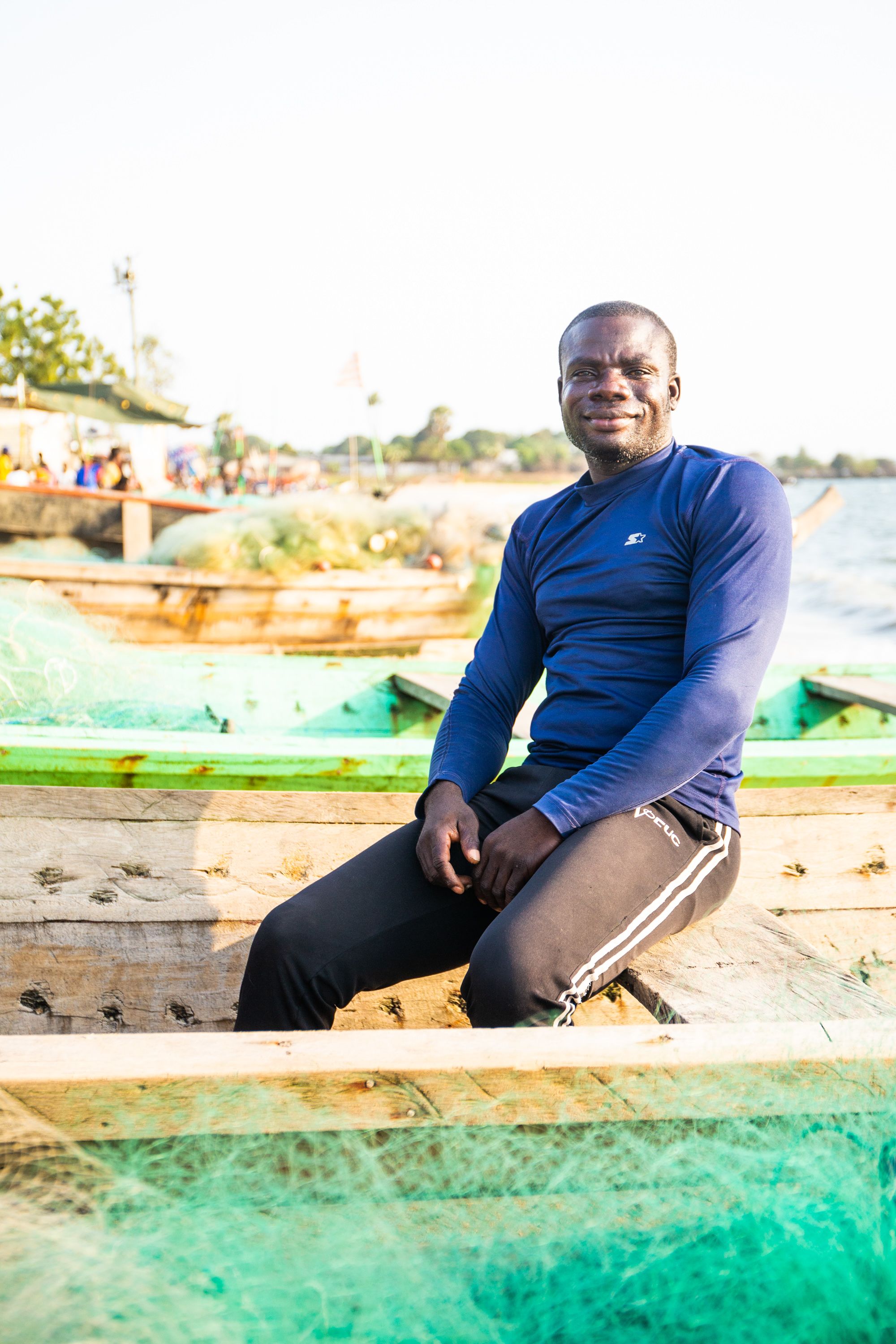
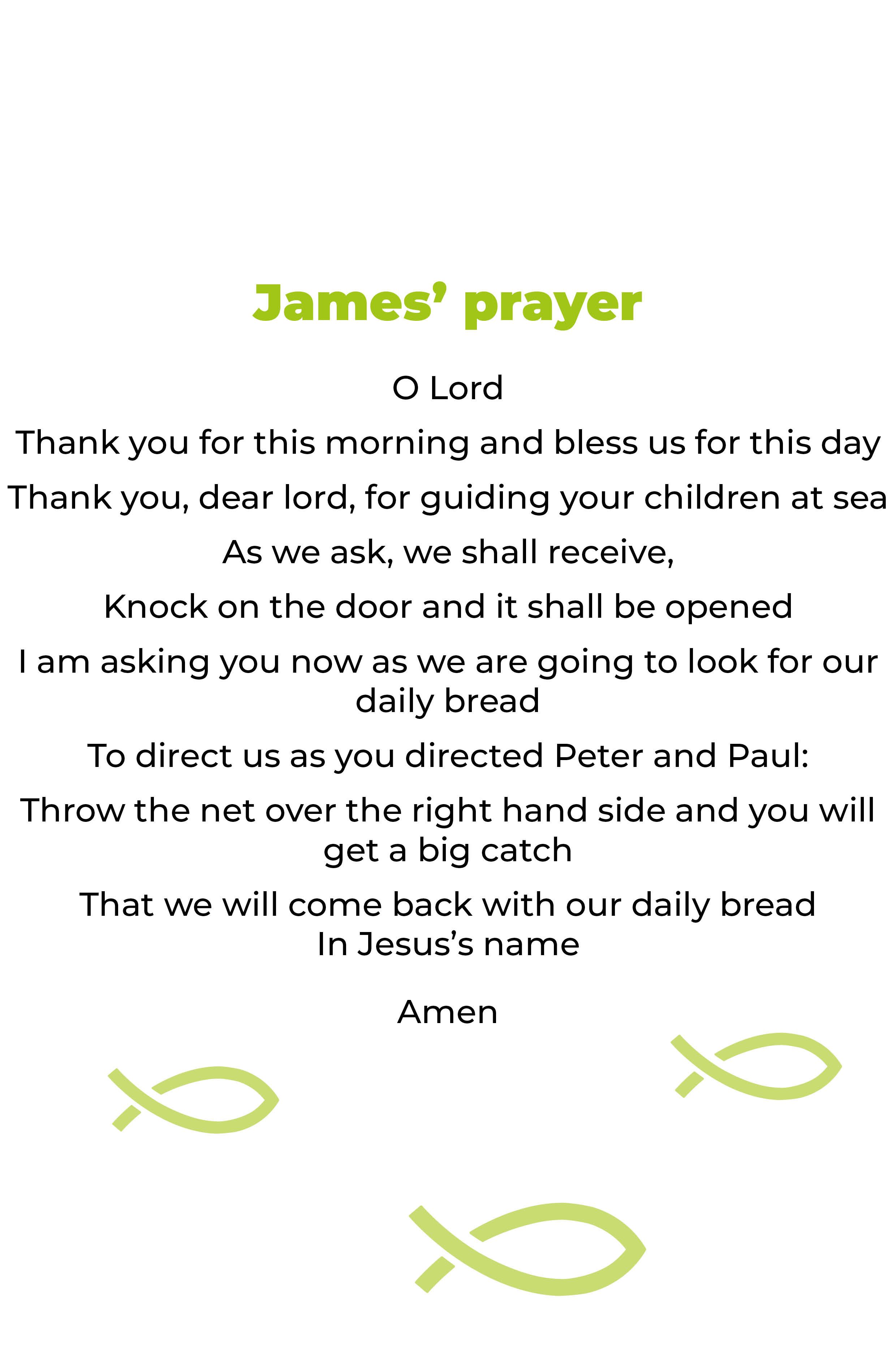
“God comes first, then fishing. Fishing is my life.”
“My father taught me how to fish at the age of twelve,” says James. Since then, he’s learned everything there is to know about the sea, how to seek its treasures and survive its threats.
“I lay in my room and when I feel the direction of where the breeze blows,” he says. “That tells me which way the water will move on the ocean. Then I know where the fish are.”
When he’s out on the water, James can find his way back home by the position of the sun on his back. He knows how to use the stars to sail as well as the direction of the wind and tides. He knows how to make bait, and how to fish and sleep at the same time by winding the line around his toe and going into a half-sleep, half-awake state.
James is proud of his skills. And what’s more, he is proud to be following in the footsteps of the Apostles with his work.
“I know James was a fisherman,” he says “I feel good about this."
"I feel blessed that the fishermen were part of the Bible. The connection makes me feel very proud.”
James isn’t alone in feeling a kinship with the fishermen who first followed Jesus. Walk along the shore through the lines of canoes and you will see painted boats. Many have short phrases from the Bible, or indicate a strong faith. God and faith are very important for the fishermen. Many have personal prayers they say before they leave for the sea – something that gives them strength for their journey and keeps them safe in storms.

“I think a lot about why Jesus included fishermen in his disciples,” says Lewis, another fisherman and James’ best friend. “What comes to mind is fishermen have patience, they have faith: they trust what they are doing. They don’t see the fish before they throw the line. They have faith that the fish are there. You just throw your net and you have to wait. If you don’t catch today, you know you will catch tomorrow.”
At the heart of that connection with the Apostles is a sense of belonging and justification: the men Jesus chose were like them – honest, brave, hardworking, willing to do what they had to, to make a living on the water.
They too had suffered with hunger. They had worried about catching enough.
And they had faced storms.
“God comes first, then fishing. Fishing is my life.”
“My father taught me how to fish at the age of twelve,” says James. Since then, he’s learned everything there is to know about the sea, how to seek its treasures and survive its threats.
“I lay in my room and when I feel the direction of where the breeze blows,” he says. “That tells me which way the water will move on the ocean. Then I know where the fish are.”
When he’s out on the water, James can find his way back home by the position of the sun on his back. He knows how to use the stars to sail as well as the direction of the wind and tides. He knows how to make bait, and how to fish and sleep at the same time by winding the line around his toe and going into a half-sleep, half-awake state.
James is proud of his skills. And what’s more, he is proud to be following in the footsteps of the Apostles with his work.

“I know James was a fisherman,” he says “I feel good about this."
"I feel blessed that the fishermen were part of the Bible. The connection makes me feel very proud.”
James isn’t alone in feeling a kinship with the fishermen who first followed Jesus. Walk along the shore through the lines of canoes and you will see painted boats. Many have short phrases from the Bible, or indicate a strong faith. God and faith are very important for the fishermen. Many have personal prayers they say before they leave for the sea – something that gives them strength for their journey and keeps them safe in storms.

James’ prayer
O Lord
Thank you for this morning and bless us for this day
Thank you, dear lord, for guiding your children at sea
As we ask, we shall receive,
Knock on the door and it shall be opened
I am asking you now as we are going to look for our daily bread
To direct us as you directed Peter and Paul:
Throw the net over the right hand side and you will get a big catch
That we will come back with our daily bread
In Jesus’s name
Amen

“I think a lot about why Jesus included fishermen in his disciples,” says Lewis, another fisherman and James’ best friend. “What comes to mind is fishermen have patience, they have faith: they trust what they are doing. They don’t see the fish before they throw the line. They have faith that the fish are there. You just throw your net and you have to wait. If you don’t catch today, you know you will catch tomorrow.”
At the heart of that connection with the Apostles is a sense of belonging and justification: the men Jesus chose were like them – honest, brave, hardworking, willing to do what they had to, to make a living on the water.
They too had suffered with hunger. They had worried about catching enough.
And they had faced storms.
"Coming home with nothing you feel bad – you have nothing to feed yourself, you have nothing for your crew, for your family."

For those in peril on the sea
As sure as he was of his skills, James still worried. Of course he did. He knew everything there was to know about navigation by the sun, by the stars, understanding the tides and how the water moves. But still, if it was your time and the storm was going to take you, it would.
And if the tides were against you, and there were no fish close to the shore, the only option was to go further out.
“Sometimes I go very far to sea. I spend a long time out there.
In a small canoe at sea it’s very dangerous. When a storm comes, you can see the storm coming. On the shore, you can just see a black colour.
We tell each other at sea: ‘Don’t go far. Don’t go far.’ We call to each other and tie our canoes together. We have to come together to remain safe. We have to have unity. This helps us a bit to deal with the storm. It stops us drifting. It will still carry you, but not as much.
When the storm comes, it empowers the ocean. The whole water is rough. The water enters the vessel in huge quantities. It doesn’t give you time to bail out the water and canoes will sink. If you don’t hold onto something and the waves come, they will make you capsize.
Then we have to wait for two or three hours and just survive together. It’s very dangerous then at sea.
I can remember a storm not long ago, when we lost a lot of friends. The ocean was very rough. We got swept out far to sea. It took our friends from us.
"I can remember my friends drowning. We survived by the grace of God.”
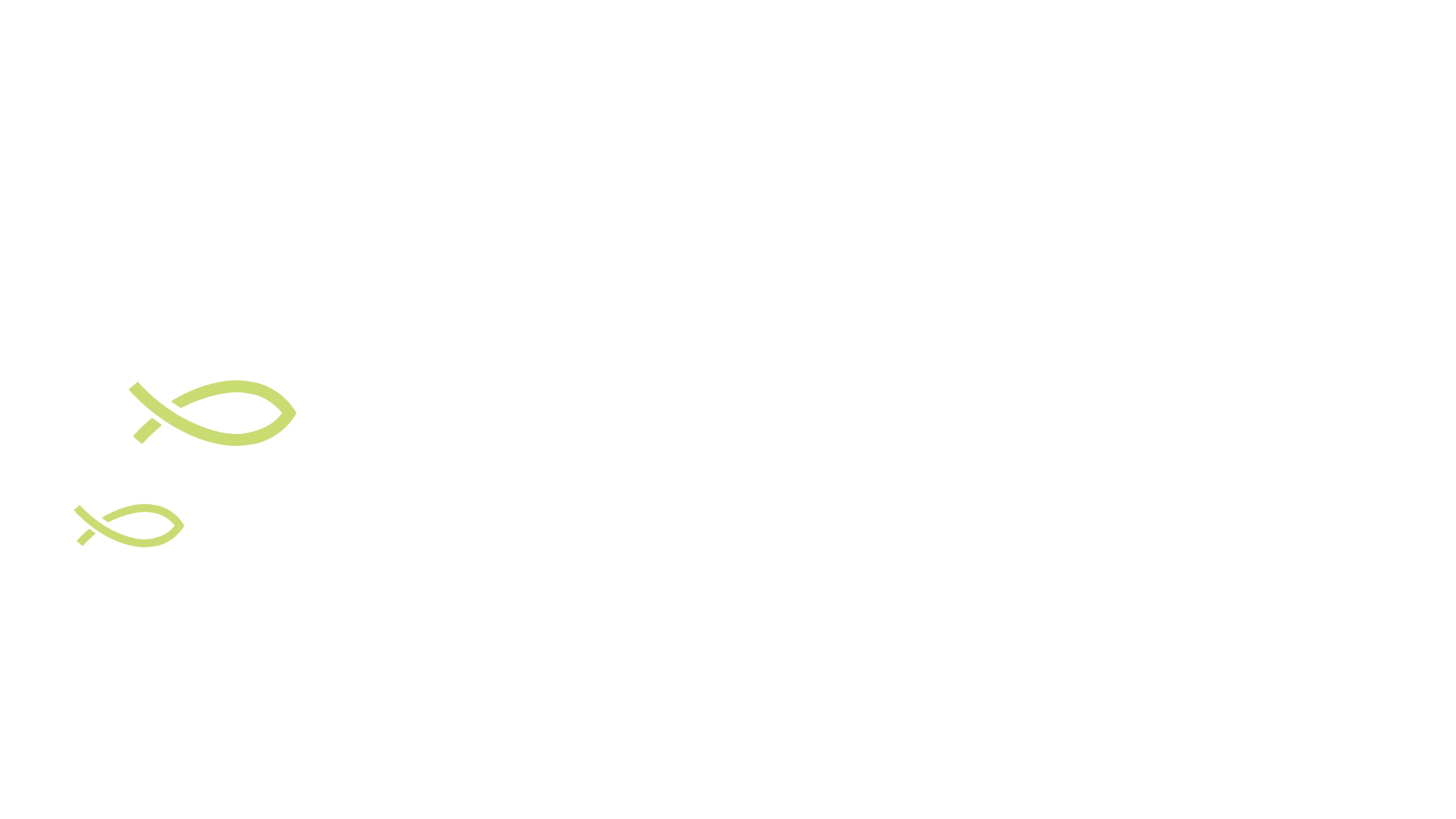
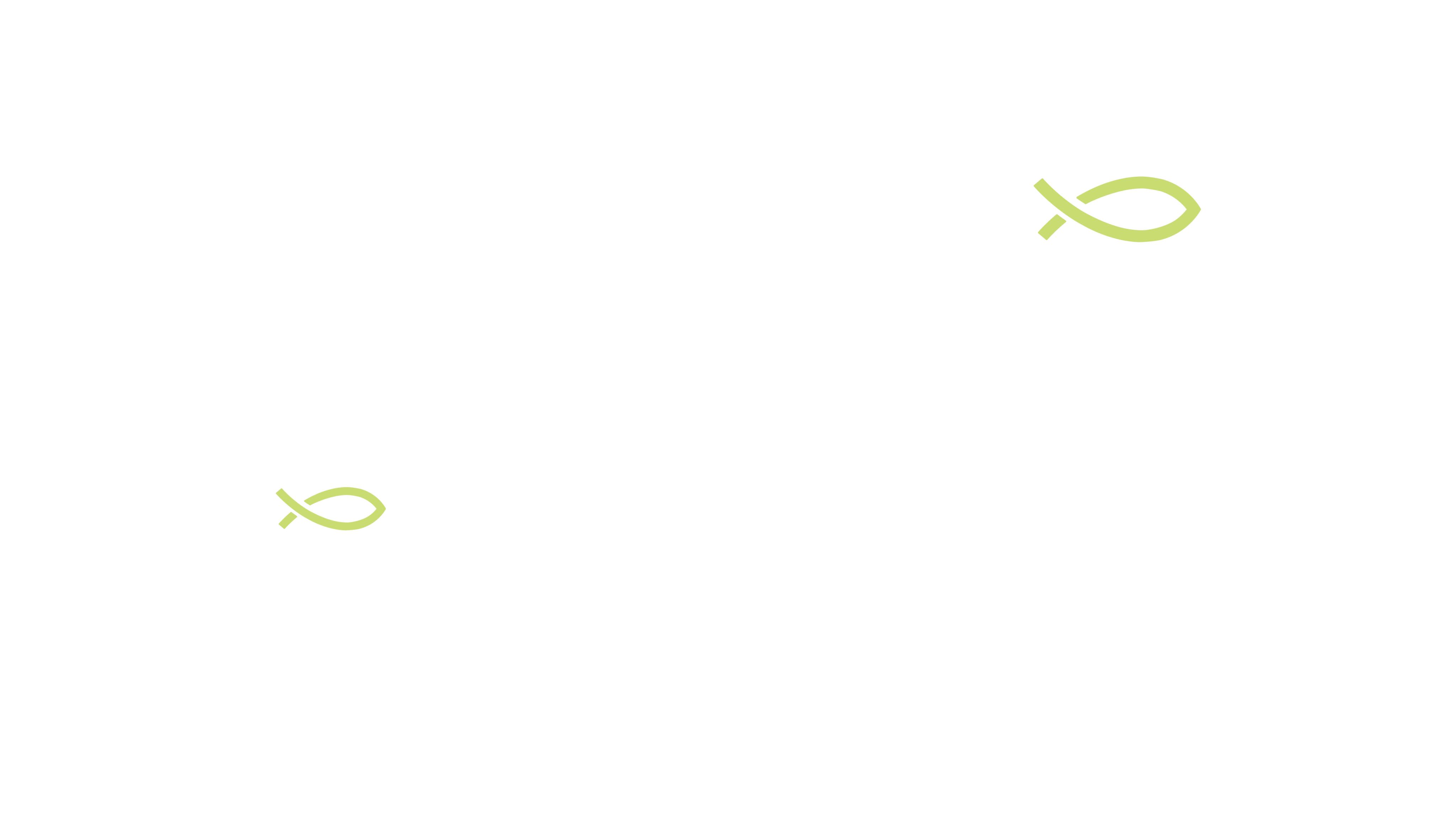

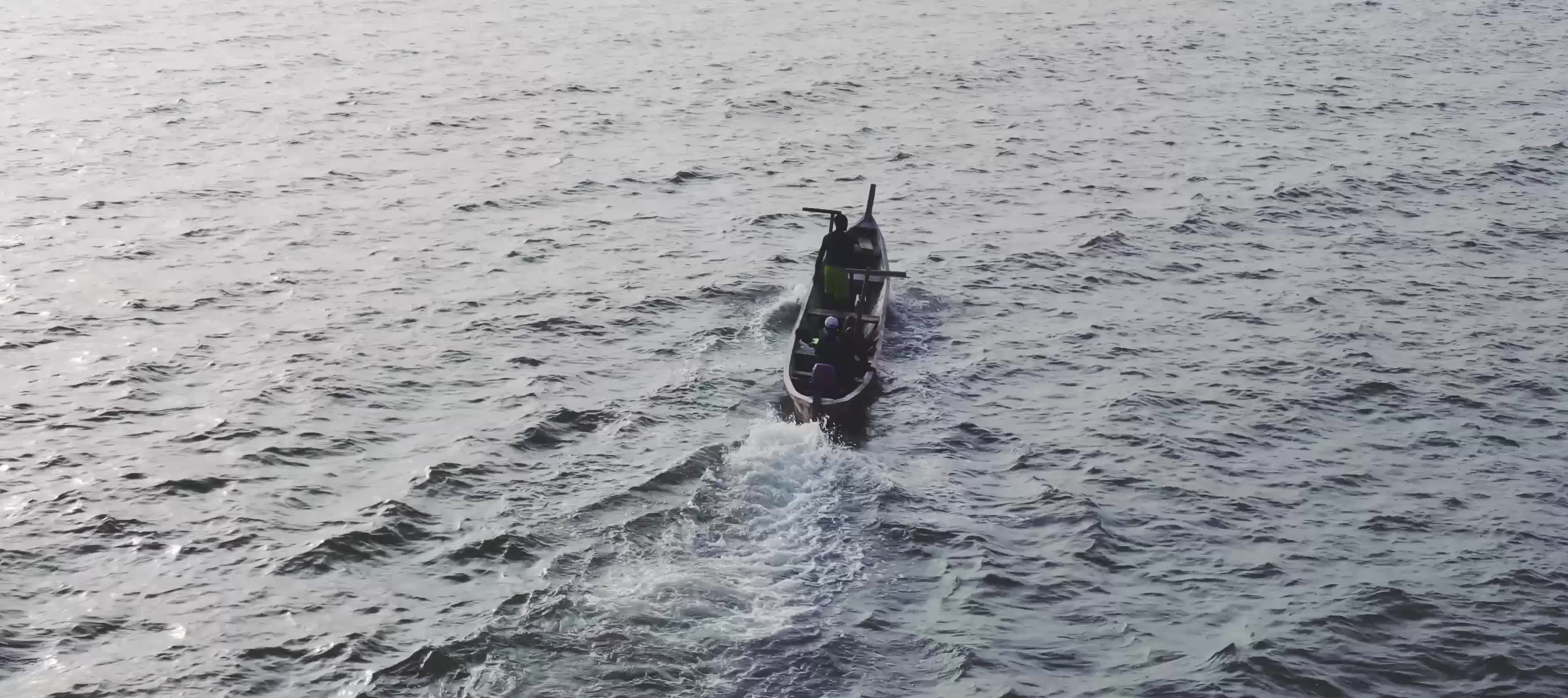
When razor sharp skills meet cutting edge technology
James brings out a palm-sized device that he keeps next to other precious mementoes on his mantelpiece. It is a GPS fishfinder. This technology helps the men to find fish, to record where good fishing spots are and to find home if they’re blown off course.
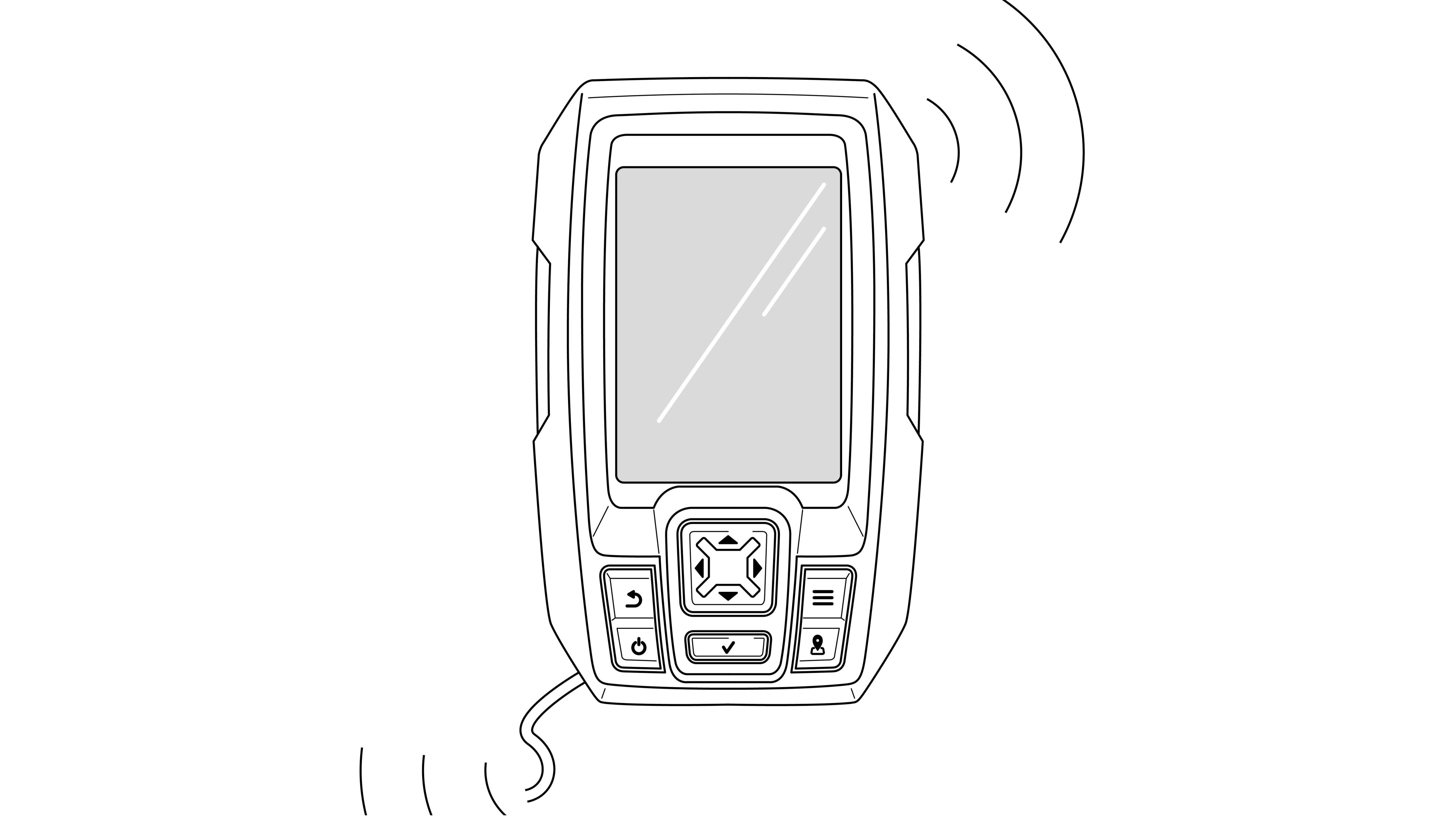
“The GPS has really helped us,” James says, showing off the gadget’s functionality. “It’s an amazing piece of equipment. It is 100 per cent good for fishing. A lot of people have confirmed it. The GPS has an echofinder. This has sense and sound under the water. Whatever it hits, it interprets that sound under the water. If you see a rock, you see all the layers. You see sand, rocks, fish.
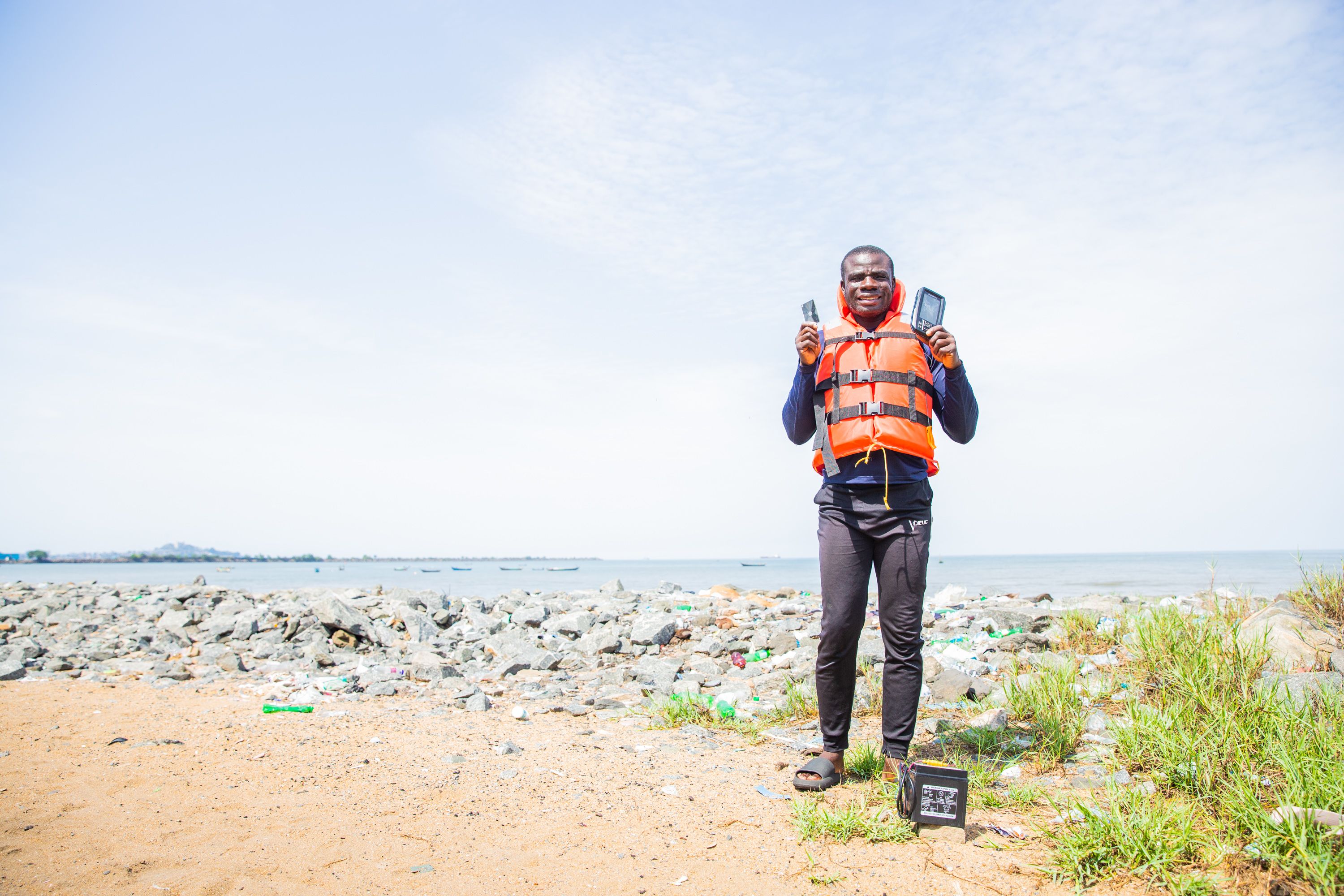
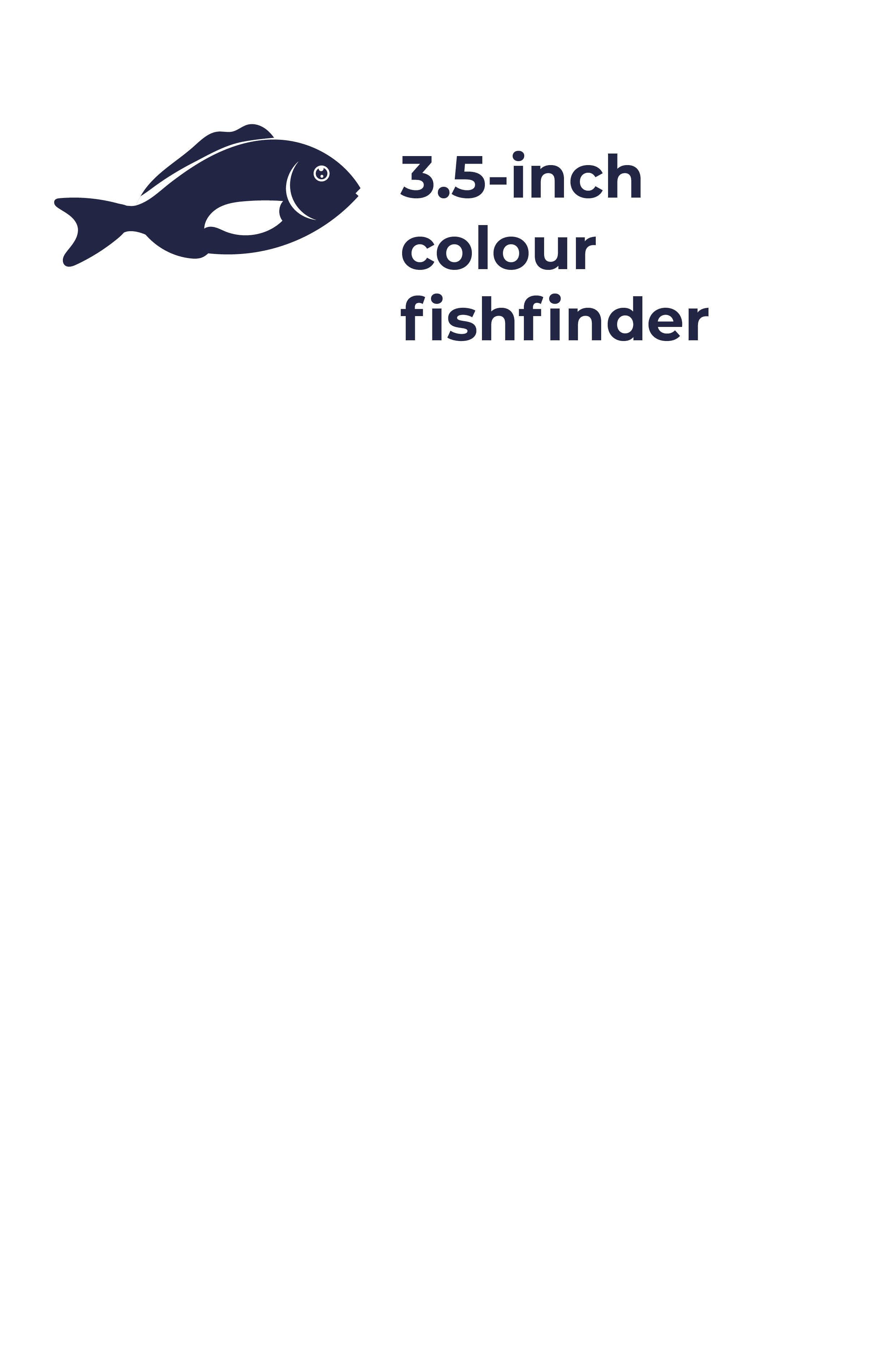
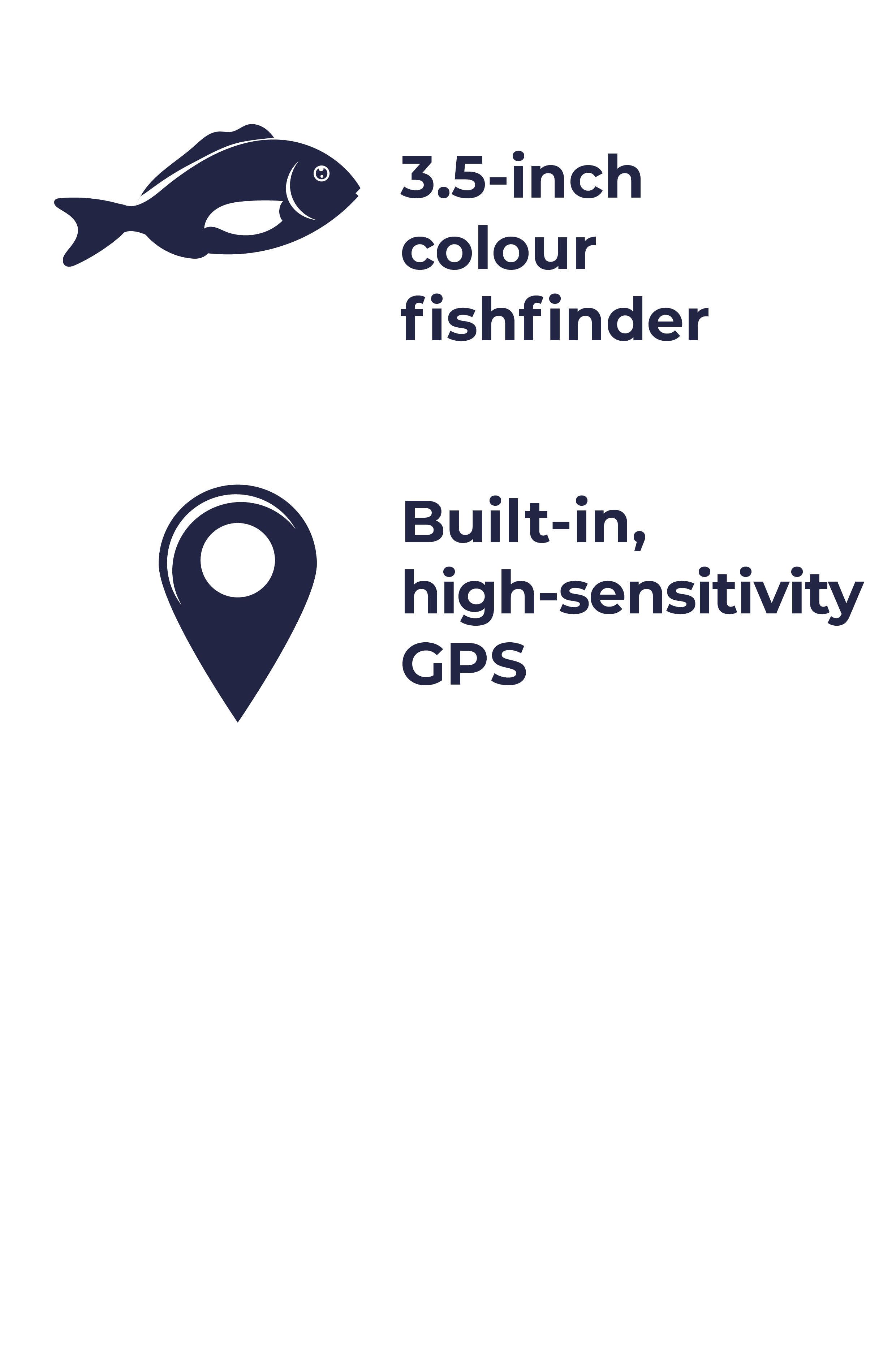
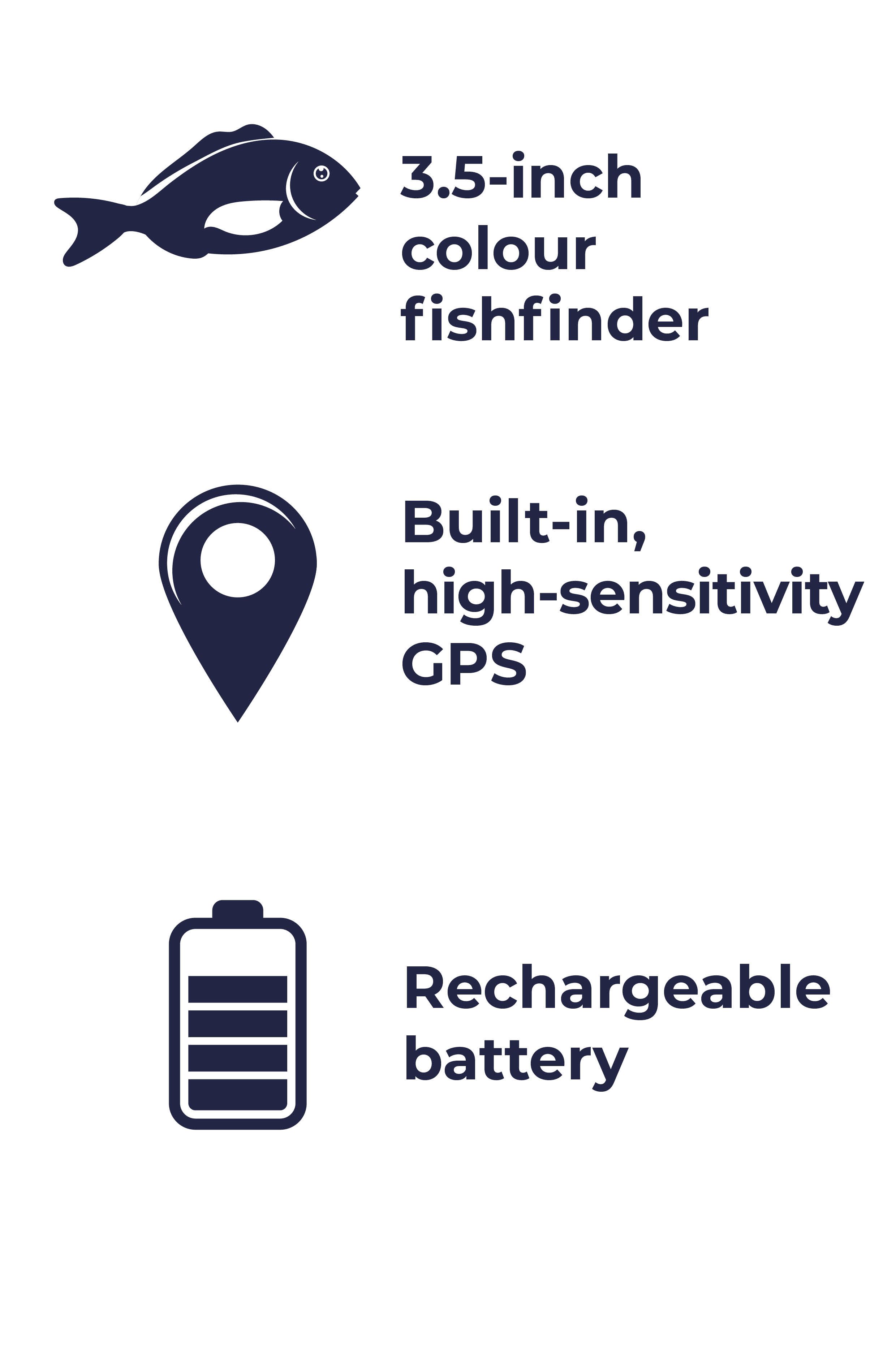
"It really has changed our lives. By the grace of God, we can go further and so we can catch better fish. We can go out at 3am and come back at 12pm. With the GPS, with bigger boats, we can stay out for days. It helps us find our way back home.”
The GPS fishfinder is part of an innovative project, funded by donations like yours, which has transformed life here in Monrovia.
The project was a joint effort between the fishermen and a CAFOD church partner organisation – Caritas Monrovia. The fishermen trained the Caritas team – sharing their skills and what it takes to go out on the water, to fish out at sea, to fight with barracuda and sharks, to watch out for storms. Together, they developed a plan.
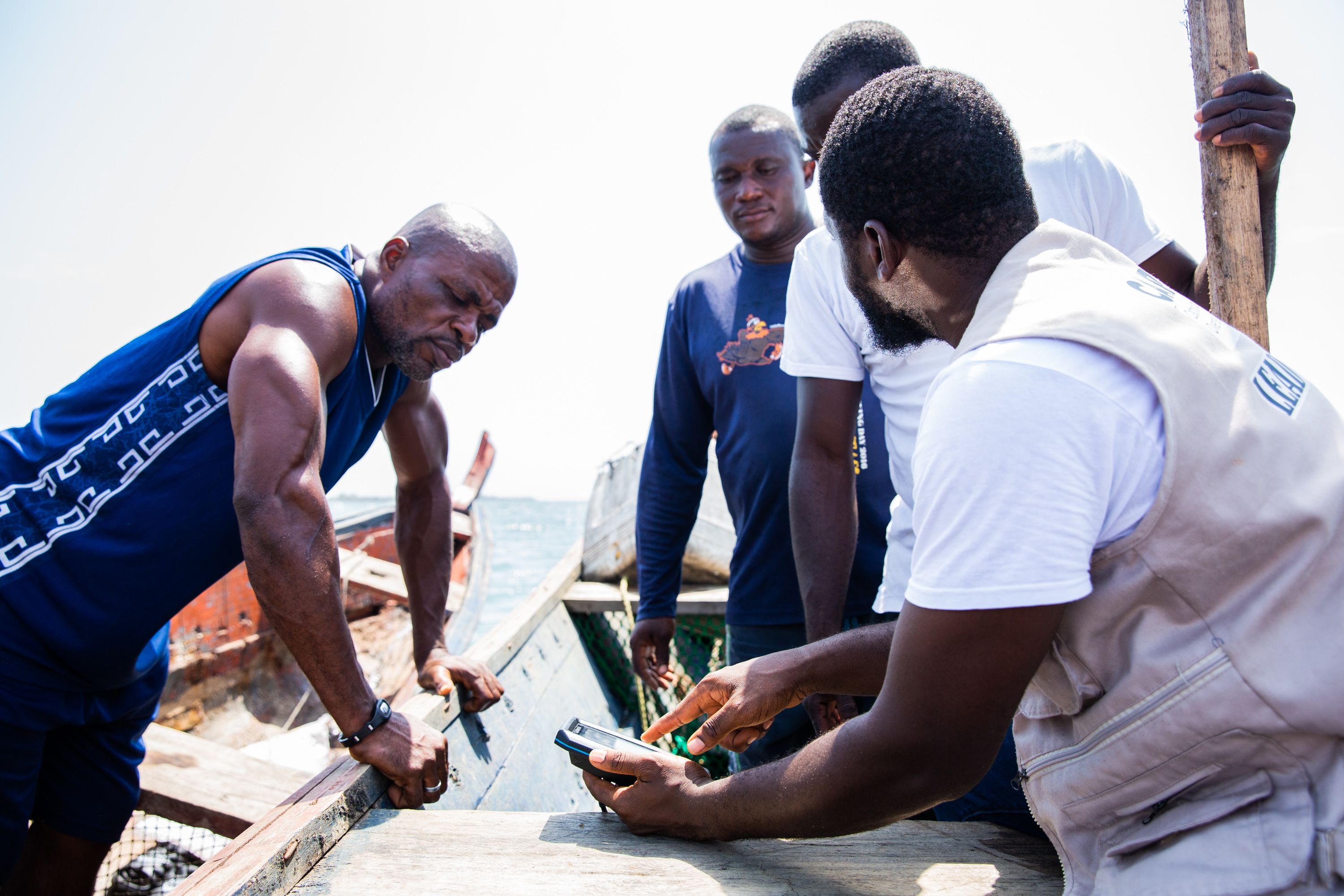
“We worked with the fishermen,” says CAFOD’s country officer for Liberia, Sampson Benin. “Learning how they fish, spending time with them out at sea to understand how they do things. Then we developed a training scheme with them to keep them safe and ensure they get a better catch. The fishfinder is part of the training."
"our idea was to marry the traditional methods of the fishermen with modern equipment.”
"It really has changed our lives. By the grace of God, we can go further and so we can catch better fish. We can go out at 3am and come back at 12pm. With the GPS, with bigger boats, we can stay out for days. It helps us find our way back home.”
The GPS fishfinder is part of an innovative project, funded by donations like yours, which has transformed life here in Monrovia.
The project was a joint effort between the fishermen and a CAFOD church partner organisation – Caritas Monrovia. The fishermen trained the Caritas team – sharing their skills and what it takes to go out on the water, to fish out at sea, to fight with barracuda and sharks, to watch out for storms. Together, they developed a plan.

“We worked with the fishermen,” says CAFOD’s country officer for Liberia, Sampson Benin. “Learning how they fish, spending time with them out at sea to understand how they do things. Then we developed a training scheme with them to keep them safe and ensure they get a better catch. The fishfinder is part of the training."
"our idea was to marry the traditional methods of the fishermen with modern equipment.”
James now has the equipment he needs to fish safely and sustainably - a compass and life jacket, the GPS tracking system, and a weather tracking app to see where and when storms are likely to strike.
The new equipment doesn’t replace James’
hard-learned skills – in the hands of anyone other than an expert fisherman it would be next to useless. But with both, James can go out on the water confident that he will make it home again, his boat full of fish. With them, James can steer his family towards the life they want.
“My son graduated from high school,” James beams proudly. “I was able to get him through school because of this project.
This is the first time an NGO (charity) has come here to help us. To make sure we’re safe and to help us catch more fish. I want to say thanks for this. The changes really helped.”
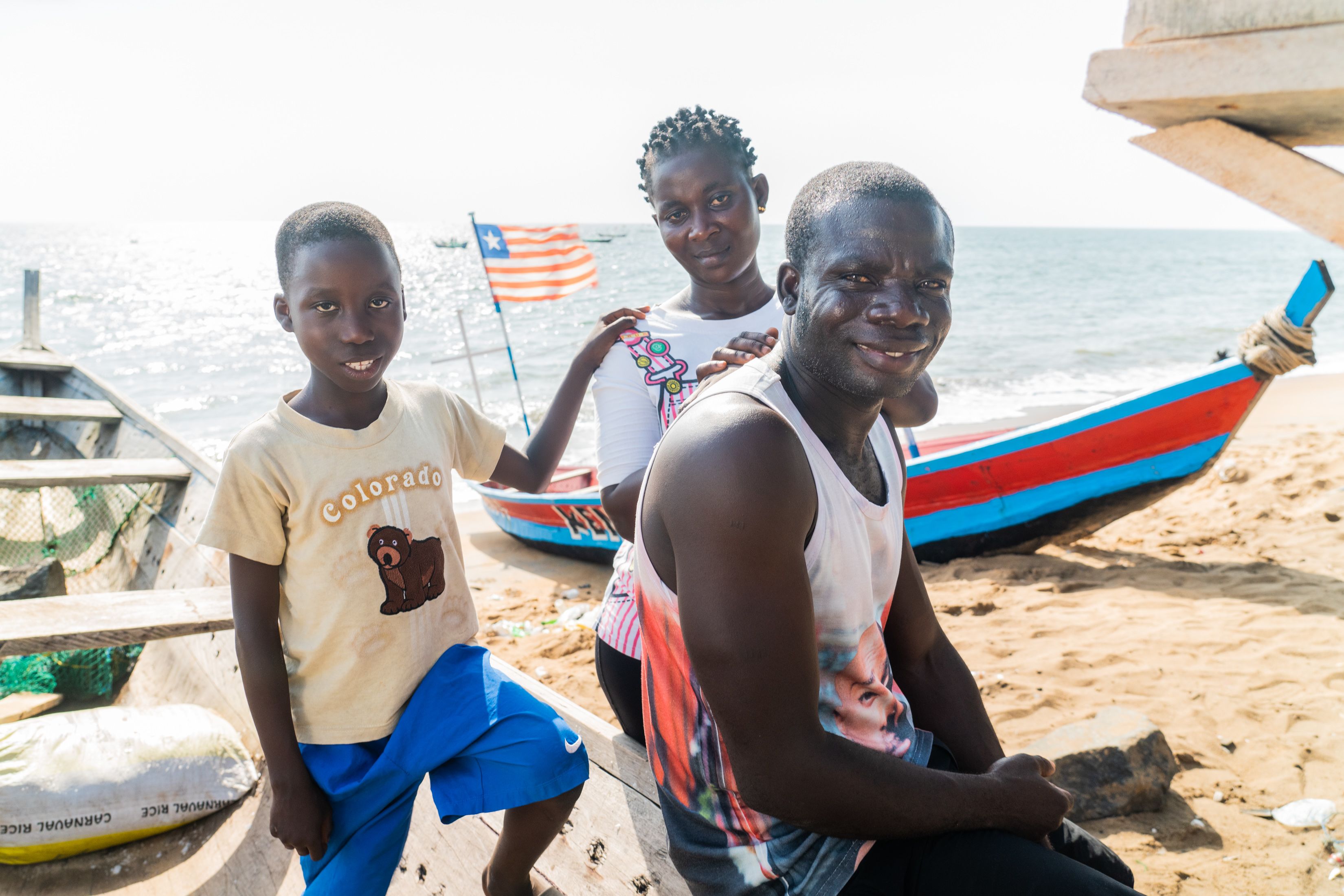
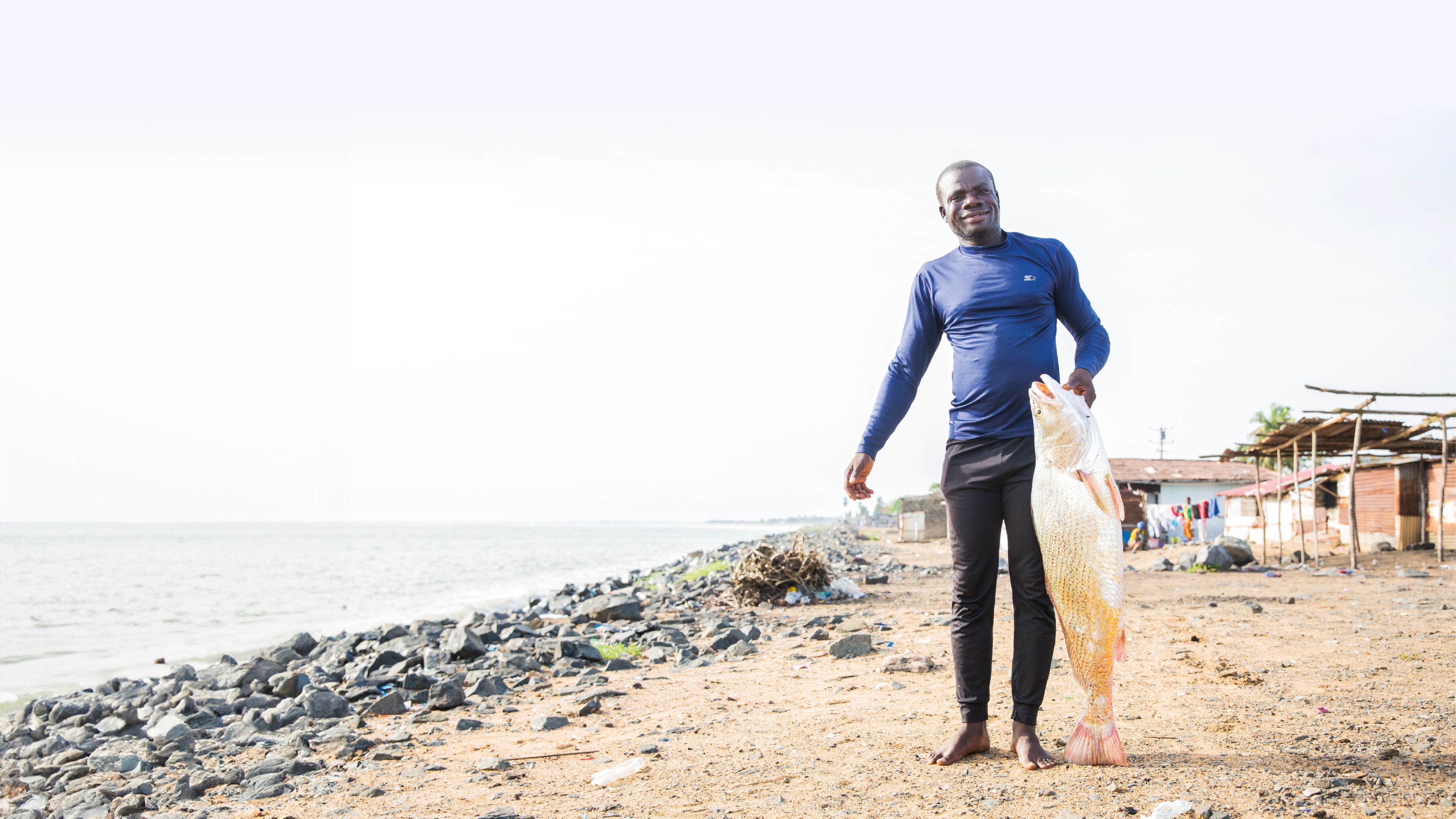
What CAFOD does
We work closely with organisations like Caritas Monrovia throughout Liberia to help people get the support they need to stand on their own two feet. It’s through brilliant teams of experts and volunteers like those in Caritas Monrovia, that we can support people and communities around the world.
We belong to the Caritas Church network – one of the largest networks in the world, with a presence in 165 countries. Because we are part of Caritas, we can reach people in places other organisations are not able to.
It is extremely important to us as a Catholic aid agency that we help everyone, regardless of faith. Providing life-saving support and helping people to build the lives they want is an expression of our faith.
Your support is crucial in allowing us to reach vulnerable people around the globe who continue to struggle with the things we take for granted.
Words: Jack Ellinas
Design: Jessie Keable-Elliott
Photography/Video editing: Thom Flint
Tech Lead: Philip Abbott
Built with Shorthand
